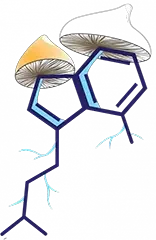Introduction
Lysergic Acid Diethylamide (LSD) therapy holds promise as a potential breakthrough in mental health treatment, opening up new avenues for addressing a range of disorders. However, considering LSD’s potent effects and checkered history, it is paramount to consider the legal and ethical facets of its therapeutic use. This article aims to delineate these considerations and underline the necessity for informed and responsible practices in this nascent field.
The History of LSD: From Prohibition to Potential Therapeutic Use
LSD, first synthesized in the late 1930s, became known for its profound psychological effects by the 1940s. Initially, promising research indicated its potential therapeutic uses. However, societal and legal pressures culminated in its widespread prohibition by the late 1960s. Recent years have seen a resurgence in interest around LSD’s therapeutic applications, catalyzing new research and clinical trials. A comprehensive overview of this history is provided by Dyck in the Canadian Medical Association Journal (2005).
Current Legal Status of LSD Worldwide
Today, LSD remains a controlled substance in numerous countries, with its possession, manufacture, and distribution often attracting severe legal penalties. Yet, exceptions have been made for its use in clinical trials and approved therapeutic programs. Notably, Switzerland and the United States have permitted limited, controlled therapeutic use and clinical trials of LSD, as reported by Krebs and Johansen in the Journal of Psychopharmacology (2013). This reflects a gradual shift in the legal perception of LSD, influenced by emerging scientific evidence.
Regulations Governing LSD-Assisted Therapy
Regulations and guidelines governing LSD-assisted therapy aim to ensure patient safety and uphold the integrity of the therapeutic process. These may include stipulations around therapist training, the therapeutic environment, patient selection, and follow-up care. In the United States, the FDA provides guidelines for the use of psychedelic substances in therapy and has approved certain trials, as documented by Reiff et al. in the Journal of the American Medical Association (2020).
Ethical Considerations in LSD-Assisted Therapy
Ethical considerations in LSD-assisted therapy are of paramount importance. These entail ensuring patients are fully informed about the potential risks and benefits, respecting patient autonomy, and acknowledging the profound effects LSD can have on one’s perception of reality. Additionally, the issue of equity in access to therapy—ensuring it’s available to those who need it most—is a vital ethical consideration. Nichols, in the Annual Review of Pharmacology and Toxicology (2016), offers a deep-dive into these ethical considerations.
The Role of Therapists in LSD-Assisted Therapy
Therapists occupy a central role in LSD-assisted therapy, thereby bearing significant ethical responsibilities. They must possess the requisite training to manage the potential effects of LSD and to provide a safe and supportive environment for patients. They are also responsible for ensuring patient confidentiality and maintaining professional therapeutic boundaries. Adherence to these responsibilities is integral to the ethical conduct of LSD-assisted therapy.
Ongoing Debates and Controversies
The application of LSD in therapy is a subject of ongoing debate, with legal and ethical issues at its heart. These debates often revolve around concerns of safety, potential for misuse, and the proper role of psychedelic substances in medicine and society. Public perception plays a significant role in these debates and can influence policy and regulatory responses. Johansen and Krebs’ article in the Journal of Psychopharmacology (2015) elaborates on these continuing controversies.
Looking Forward: Legal and Ethical Issues in the Future of LSD Therapy
As research into LSD-assisted therapy progresses and potentially expands, new legal and ethical dilemmas are likely to arise. Anticipating and addressing these challenges will necessitate ongoing dialogue among researchers, clinicians, policymakers, and society at large. Future considerations may include refining regulations for LSD-assisted therapy, managing the potential commercialization of LSD therapy, and ensuring equitable access to therapy.
Conclusion
Comprehending and addressing the legal and ethical considerations in LSD-assisted therapy is crucial as this field continues to evolve. This includes a holistic understanding of current laws and regulations, as well as ethical responsibilities toward patients. The evolution of legal and ethical frameworks in response to emerging research will play a decisive role in the future of LSD-assisted therapy.
[gap height=”130px”]
[ux_image id=”8401″]
[gap height=”130px”]
We hope that you have gained a little more understanding and wisdom after reading through our article about LSD. We hope that it has inspired you to explore the multitude of possibilities through LSD.
Shroomhub is your trusted online source in Canada for all things Psychedelic, from Magic Mushrooms, LSD and even DMT, take advantage of our weekly deals and bargain prices you wont find anywhere else!
[gap height=”130px”]
[message_box]
[row v_align=”middle” h_align=”center”]
[col span=”9″ span__sm=”12″]
Author
Freelance Writer
Leo Thomas
[/col]
[col span=”2″ span__sm=”12″ align=”center”]
[button text=”Linkedin” color=”white” style=”outline” radius=”99″ link=”https://www.linkedin.com/in/leo-thomas-24b827279/”]
[/col]
[/row]
[/message_box]




